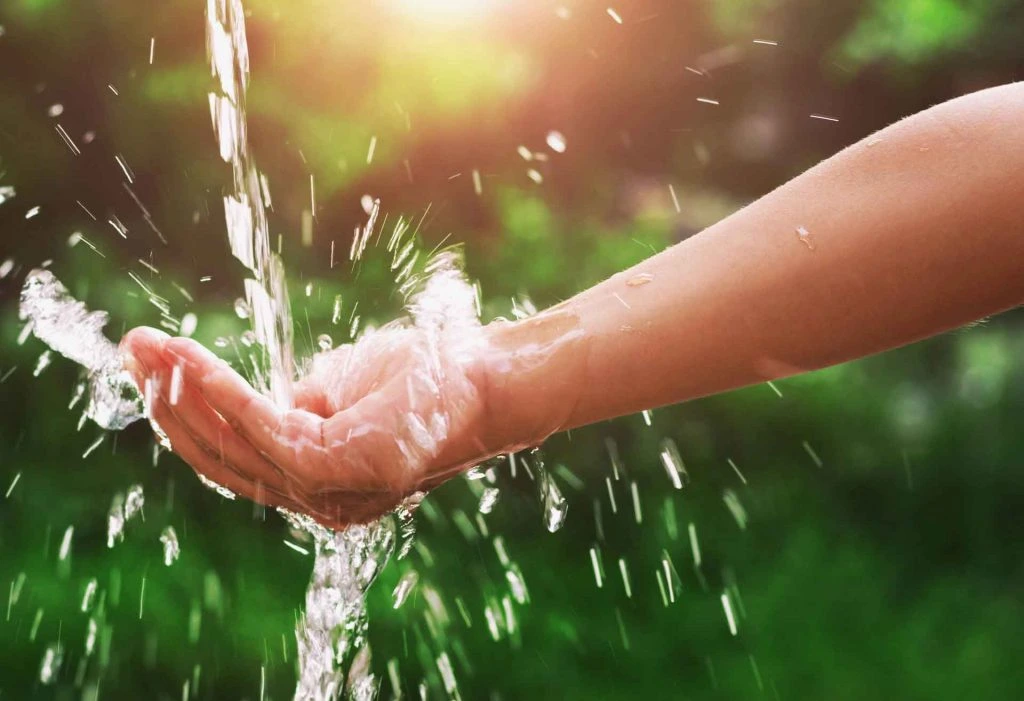How to Save Money on your Water Bill
Discover effective tips on how to save money on your water bill in South Africa. Learn practical strategies, from fixing leaks to installing water-saving devices, to reduce your monthly expenses while promoting responsible water usage. Start saving today!
By The National Debt Review Center

Smart Strategies to Save Money on Your Water Bill in South Africa
In South Africa, where water is a precious resource, managing your water usage efficiently not only helps conserve this essential commodity but also contributes to significant savings on your monthly water bill. In this article, we will explore practical and effective strategies to help you save money on your water bill in South Africa.
Fix Leaks Promptly
Leaky faucets, dripping pipes, and running toilets can lead to a significant amount of wasted water over time. Regularly inspect your plumbing for any leaks and fix them promptly. This simple step can prevent water wastage and reduce the amount you’re billed for.
Install Water-Saving Devices
Consider investing in water-saving devices such as low-flow faucets, showerheads, and dual-flush toilets. These fixtures are designed to reduce water consumption without compromising performance. While there might be an initial cost, the long-term savings on your water bill make them a worthwhile investment.
Collect Rainwater
Take advantage of South Africa’s ample sunshine by installing a rainwater harvesting system. Collecting rainwater can provide a free source of water for your garden, reducing your reliance on municipal water for irrigation. This not only saves money but also promotes sustainable water use.
Mulch Your Garden
Applying a layer of mulch to your garden helps retain moisture, reducing the need for frequent watering. This is particularly important in South Africa’s arid regions. By keeping the soil moist for longer, you can cut down on your water usage and subsequently lower your water bill.
Time Your Watering
Watering your garden during the early morning or late afternoon reduces evaporation, ensuring that more water reaches the roots of your plants. This efficient watering schedule not only promotes healthier plants but also helps you save on water costs.
Collect Greywater
Greywater, which includes water from activities like dishwashing, laundry, and bathing, can be reused for non-potable purposes such as watering plants and flushing toilets. Install a greywater system to recycle water within your household, decreasing your reliance on fresh water and reducing your monthly bill.
Be Mindful of Appliance Usage
Opt for efficient appliances, especially those that use water, such as dishwashers and washing machines. Only run these appliances with full loads to maximize water efficiency. Additionally, consider handwashing dishes, when possible, to save water and electricity.
Educate and Involve Your Household
Ensure that everyone in your household is aware of the importance of water conservation and involved in implementing water-saving practices. Encourage shorter showers, turning off taps when not in use, and other habits that contribute to overall water efficiency.
Frequently Asked Questions
How can I save water to reduce my bill?
To save water and reduce your bill, fix any leaks promptly, install water-saving devices, collect rainwater for garden use, time your watering for efficiency, and consider reusing greywater for non-potable purposes like irrigation or flushing toilets.
How can we save money from water?
- You can save money on water by adopting water-efficient habits, fixing leaks, investing in water-saving appliances, collecting rainwater, reusing greywater, and being mindful of your water consumption in daily activities.
How can I save money on my water meter?
- Save money on your water meter by fixing leaks, using water-saving devices, collecting rainwater, and practicing efficient water usage habits. Regularly monitor your meter and address any unusual spikes in usage promptly.
How to pay water bill?
- Typically, water bills can be paid through various methods, including online payments, direct debit, in-person payments at designated locations, or via postal services. Check with your local water utility for specific payment options available in your area.
What are 5 ways to reduce water usage?
- Fix leaks promptly
- Install water-saving devices
- Collect rainwater for outdoor use
- Reuse greywater for non-potable purposes
- Time your watering for efficiency
How can I reduce my water bill in South Africa?
- Reduce your water bill in South Africa by adopting water-saving practices, fixing leaks, using water-efficient appliances, collecting rainwater, reusing greywater, and being mindful of your overall water consumption.
How much is the average water bill per month in South Africa?
- The average water bill in South Africa can vary depending on factors such as location, household size, and usage patterns. On average, South African households may expect to pay a monthly water bill ranging from a few hundred to over a thousand Rand. Contact your local water utility for specific and up-to-date information on water rates in your area.
How a household can save water?
- Fix leaks promptly.
- Install water-saving devices such as low-flow faucets and showerheads.
- Collect rainwater on jojo tanks for outdoor use.
- Reuse greywater for activities like watering plants and flushing toilets.
- Time your watering for efficiency, preferably in the early morning or late afternoon.
- Use a broom instead of a hose to clean driveways and sidewalks.
- Only run dishwashers and washing machines with full loads.
- Turn off taps when not in use.
- Shorten shower times.
- Consider investing in water-efficient appliances.
How is your water bill calculated in South Africa?
- In South Africa, water bills are typically calculated based on the volume of water consumed, measured in kilolitres (kL). The municipality or water utility charges a specific rate per kilolitre, and your bill is determined by multiplying the consumption in kilolitres by the applicable rate. Some areas may also have fixed charges or additional fees based on factors like property size or water meter size.
What saves the most water?
- Fixing leaks is one of the most effective ways to save water, as even small leaks can add up to significant water wastage over time. Additionally, using water-saving devices, collecting rainwater, and reusing greywater for non-potable purposes are impactful strategies for water conservation.
What are the 15 uses of water?
- Drinking and cooking
- Bathing and personal hygiene
- Washing dishes
- Laundry
- Watering plants and gardens
- Flushing toilets
- Cleaning surfaces and spaces
- Industrial processes
- Irrigation in agriculture
- Generating hydroelectric power
- Recreation (e.g., swimming)
- Firefighting
- Livestock and pet care
- Cooling in industrial facilities
- Transportation (e.g., shipping)
What is the best time to save water?
- The best time to save water is consistently throughout the day by adopting water-efficient habits. However, specific activities like watering plants are best done during the early morning or late afternoon to minimize evaporation and ensure optimal absorption by the soil. Being mindful of water usage at all times contributes to overall water conservation.
How to reduce water bill on low income?
Reducing your water bill on a low income requires adopting practical and cost-effective strategies. Here are some tips to help you save water and cut down on your water expenses:
- Fix Leaks Promptly: Address any leaks in your plumbing as soon as possible. Leaks, even small ones, can contribute to a significant amount of wasted water and an inflated bill.
- Install Water-Saving Devices: Consider installing low-flow faucets and showerheads. These are relatively inexpensive and can significantly reduce water consumption without compromising functionality.
- Collect Rainwater: Set up a simple rain barrel to collect rainwater. This can provide you with free water for tasks like watering plants or flushing toilets, reducing your reliance on municipal water.
- Reuse Greywater: Capture and reuse greywater from activities like dishwashing and bathing. While more complex systems can be installed, simple methods like using a basin to collect water from handwashing can also be effective.
- Time Your Watering: If you have a garden, water it during the early morning or late afternoon to minimize evaporation. This ensures that the water you use is effectively absorbed by the soil.
- Be Mindful of Appliance Usage: Use appliances like washing machines and dishwashers only when you have full loads. This maximizes their efficiency and reduces overall water consumption.
- Educate Yourself on Assistance Programs: Check with your local municipality or water utility for any assistance programs or subsidies available for low-income households. Some areas offer discounted rates or financial assistance to help ease the burden of water bills.
- Negotiate Flexible Payment Plans: If you’re struggling to pay your water bill, contact your water utility. Some utilities offer flexible payment plans or assistance programs for individuals facing financial difficulties.
- Community Resources: Explore community resources that may offer support for utility bills. Local non-profit organizations or social services may have programs in place to assist low-income individuals with their water expenses.
- Educate Yourself on Water-Saving Practices: Stay informed about water-saving practices and continue to educate yourself on ways to reduce consumption. Being mindful of your water usage and making small adjustments can have a positive impact on your bill.
Remember, every drop saved contributes to both water conservation and financial savings. By implementing these strategies, you can reduce your water bill even on a limited income.
Conclusion
By adopting these practical strategies, you can make a significant impact on your water bill while contributing to the responsible use of water resources in South Africa. Conserving water not only saves you money but also plays a crucial role in building a sustainable and water-wise future for the nation. Embrace these water-saving habits today and watch your savings flow in.






0 Comments